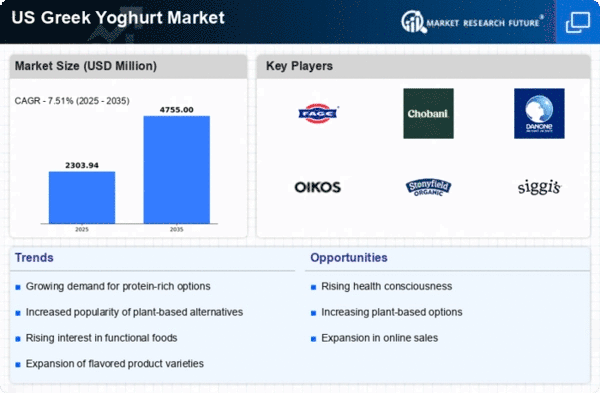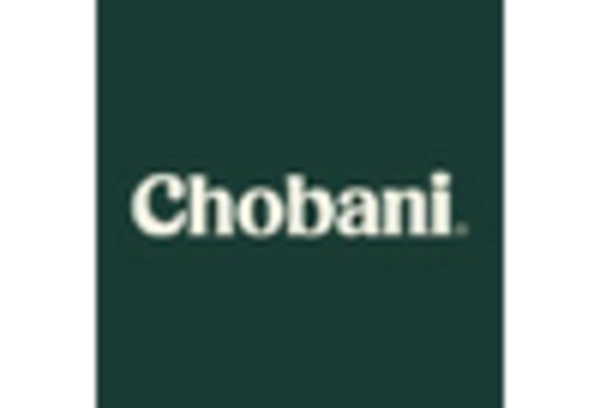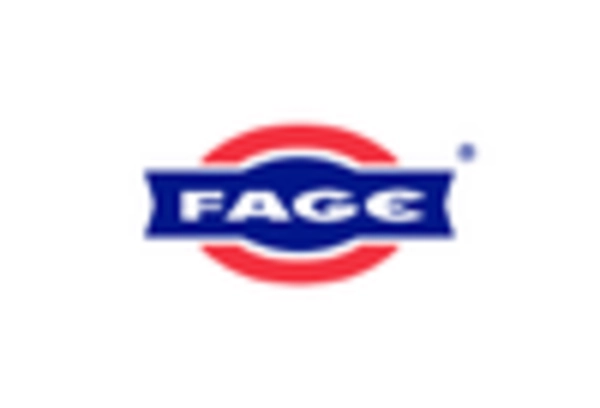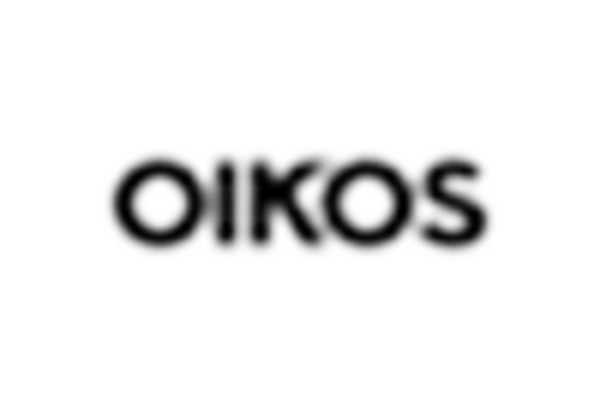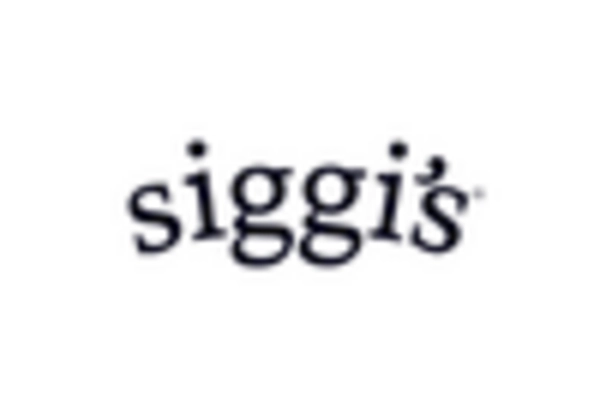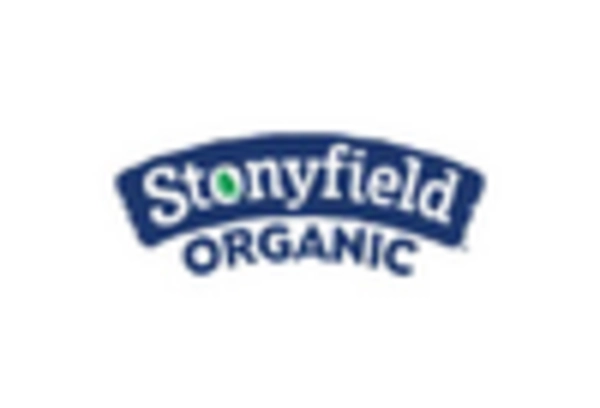Expansion of Retail Channels
The expansion of retail channels is a crucial driver for the greek yoghurt market. With the rise of e-commerce and the diversification of grocery shopping options, consumers have greater access to a variety of greek yoghurt products. Online grocery sales have surged, with a reported increase of 25% in the last year, allowing consumers to explore different brands and flavors from the comfort of their homes. Additionally, traditional retailers are expanding their yogurt sections to include more greek yoghurt options, catering to the growing demand. This increased availability across multiple platforms is likely to enhance market growth, as consumers are more inclined to purchase products that are easily accessible.
Innovative Marketing Strategies
Innovative marketing strategies are playing a pivotal role in shaping the greek yoghurt market. Brands are increasingly utilizing social media and influencer partnerships to reach younger demographics, effectively promoting the health benefits and versatility of greek yoghurt. Recent campaigns have shown that targeted marketing can increase brand awareness by up to 30%. Furthermore, companies are focusing on storytelling and lifestyle branding to connect with consumers on a personal level. This approach not only enhances brand loyalty but also encourages trial among new customers. As marketing strategies evolve, the greek yoghurt market is likely to see a boost in consumer engagement and sales, driven by effective communication of product benefits.
Increased Awareness of Gut Health
The rising awareness of gut health and its connection to overall well-being is significantly influencing the greek yoghurt market. Greek yoghurt is often marketed as a probiotic-rich food, which is believed to support digestive health. Recent studies suggest that a healthy gut microbiome can enhance immune function and reduce inflammation. As consumers become more educated about the importance of gut health, the demand for products like greek yoghurt, which contain live cultures, is expected to rise. This trend may lead to a projected growth of 10% in the greek yoghurt market over the next few years, as more individuals incorporate probiotic foods into their diets.
Rising Demand for Protein-Rich Foods
The increasing consumer preference for protein-rich diets is a notable driver in the greek yoghurt market. Greek yoghurt, known for its high protein content, appeals to health-conscious individuals seeking nutritious snack options. According to recent data, the protein content in greek yoghurt can be as high as 10g per serving, which is significantly more than traditional yoghurts. This trend aligns with the broader movement towards high-protein diets, which has seen a growth rate of approximately 20% in the last few years. As consumers become more aware of the benefits of protein for muscle maintenance and overall health, the demand for greek yoghurt is likely to continue its upward trajectory, further solidifying its position in the market.
Shift Towards Convenient and On-the-Go Products
The greek yoghurt market is experiencing a shift towards convenience, with consumers increasingly seeking on-the-go options. Busy lifestyles have led to a demand for portable and easy-to-consume products. Greek yoghurt, often available in single-serve containers, fits this need perfectly. Market data indicates that single-serve packaging has grown by 15% in the last year, reflecting consumer preferences for convenience. This trend is particularly pronounced among millennials and Gen Z, who prioritize quick and healthy snacks. As manufacturers innovate with packaging and portion sizes, the greek yoghurt market is likely to benefit from this growing demand for convenience, potentially leading to increased sales and market penetration.


